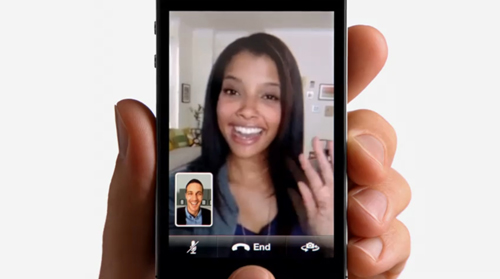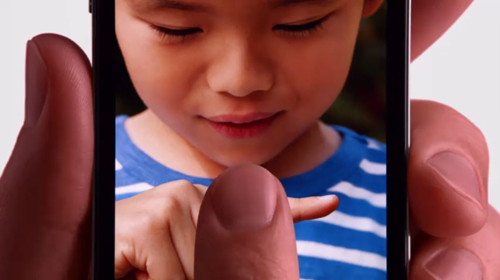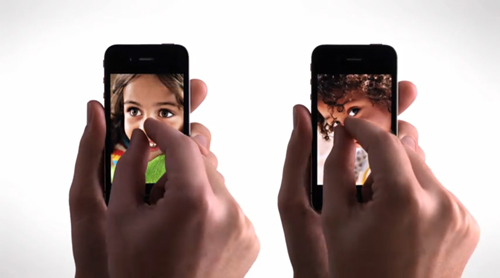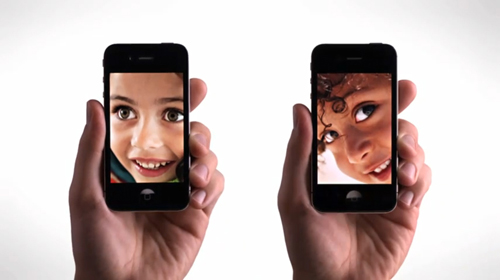



If we look at the screenshots of iPhone4 advertisements below, we see the wide range of races that are presented on the screens, and we see the consistent use of implied Caucasian hands. It is possible that these races represent power. The Apple products, especially the iPhone4, are expected to give one access to the world. The people on the screen serve as the people of the future, the future that the viewer will have if they own an iPhone. In these screenshots, the people on the screen all appear to be from young generations. This is not the case for all Apple iPhone advertisements. Regardless if they are young or old, they are in the hands of the user, the Caucasian hands. These hands all appear to be of mid age, not too old, not too young, possibly the hands of a "stable" human being who could possibly purchase the expensive products. The lack of diverse races implied by the hands holding the product hinders the idea that anyone can have power with the product. It limits the possibility of anyone benefitting from being an owner, and it places the Caucasian race in a more powerful position compared to other races. By placing the races within the screen, a vulnerable position to the Caucasian hands, the people of diverse races lose their potential to be powerful. They are placed on display, just as porcelain dolls in a glass case, they are in a perfect and pristine world, but have no power, they are at the hands of the owner. The use of the younger generation in the four screenshots below heightens this concept. They are young, and often naivety is associated with being young, leaving the hands to guide and shape them.
   
|
|||||||||||||||||||
With all of these normalized, yet relatable,
aspects of the advertisements a viewer has the ability to feel as though
they are knowledgeable. The invisibility and absence of an actual human
being in their entirety within the advertisements is very important to
this world. It gives the viewer a sense of power. From a
psychoanalytical standpoint, the viewer has the ability to peer into
Apple's world, and be an outside observer while also stepping into the
hands of the product user. This element is the primary source of
relation for the viewer and it is important that it remains consistent
through each and every advertisement. The topic of the advertisements
change, but if the viewer still has the ability to observe and step in,
they can learn about the different parts of the Apple world and do so
with ease. Even more importantly, with the invisibility of an actual
user, the viewer can mesh with the hands that are there. They then are
allowed to become one with the product and not only learn about the
world Apple has formed but fully step into it. The world that Apple,
Inc. has created through these advertisements is one that allows its
viewers to experience it in the moment and want it quickly after.